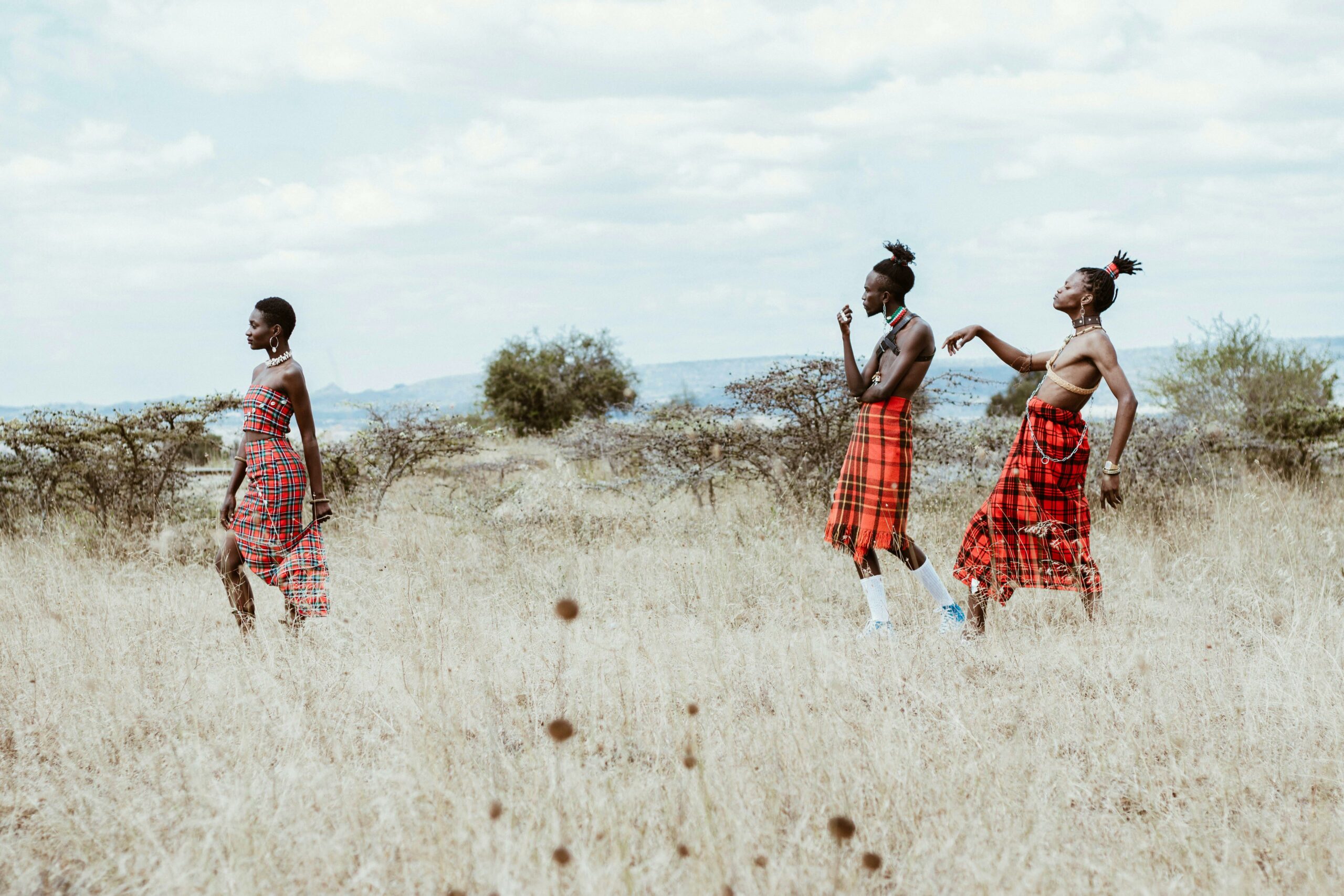In today’s diverse world, understanding the difference between race and ethnicity is crucial, yet many people remain confused about these two terms. Have you ever wondered why people often mix them up? This distinction is not just academic; it shapes our identities and perceptions in profound ways. While race refers to the physical characteristics, such as skin color and facial features, ethnicity dives deeper into cultural aspects, including language, traditions, and shared history. But why does this matter in the context of social justice and equality? With ongoing discussions about racial discrimination and the importance of cultural identity, exploring these concepts can help us navigate the complexities of modern society. Are you ready to uncover the nuances of these terms and understand their impact on our lives? In this blog post, we will delve into the definitions of race and ethnicity, explore their differences, and discuss how they influence our interactions in a multicultural world. Stay tuned to discover how understanding these concepts can promote inclusivity and foster better communication among diverse communities. Your journey into the rich tapestry of human identity begins here!
Unpacking the Nuances: 7 Key Differences Between Race and Ethnicity You Need to Know
Alright, let’s dive into a topic that’s got folks scratching their heads: what’s the difference between race and ethnicity. Like, seriously, why is it that some people mix these two up like their morning coffee and orange juice? Not really sure why this matters, but here we go.
First off, let’s break it down. Race is often seen as a social construct based on physical characteristics—think skin color, facial features, hair type, and all that jazz. So, when someone says “I’m Caucasian” or “I’m Black,” they’re referring to their race. But let’s not get too carried away here. It’s kinda simplistic, right? I mean, there’s so much more to a person than just the color of their skin!
On the flip side, we got ethnicity, which is more about cultural identity. It’s like the spice rack of a person’s background. It includes things like language, traditions, and even religion. So, when you hear someone say they’re “Hispanic” or “Italian,” they’re talking about their ethnicity. And honestly, that’s where it gets a lil’ complicated. Because, you see, people can belong to the same race but have different ethnic backgrounds. It’s like being part of the same club but living in different neighborhoods, if you catch my drift.
Here’s a quick table that might help clear things up a bit (or not, who knows):
| Aspect | Race | Ethnicity |
|---|---|---|
| Definition | Physical characteristics | Cultural identity |
| Examples | Caucasian, Black, Asian | Hispanic, Jewish, Italian |
| Basis | Biology and appearance | Culture and traditions |
| Changeability | Less likely to change | Can change over time |
Okay, so there ya have it. But let’s not stop there. Maybe it’s just me, but I feel like people really mix these concepts up all the time. Like, have you ever heard someone say, “Oh, she’s Asian, so she must be Chinese”? Yikes! That’s a big ol’ no-no. Asian is a race, and there are tons of ethnicities within that, like Japanese, Korean, Thai – the list goes on.
And don’t even get me started on how race and ethnicity can intersect. Like, you could be a Black person who identifies as Jamaican, or you could be a White person who identifies as Irish. So, race is like, “Hey, look at my skin,” while ethnicity is more like, “Check out my family traditions and the food we eat.” You got it? Or are we still lost in the sauce?
You might be thinking, “What’s the point of knowing all this?” Well, my friend, understanding the difference between what’s the difference between race and ethnicity can help you navigate social situations a bit better. It’s like having a cheat sheet when you’re trying to connect with people from different backgrounds. You don’t want to step on toes, right?
Now, let’s get a bit more real here. There’s an ongoing debate about whether race is even a valid concept. I mean, some folks argue that it’s outdated and doesn’t really represent who people are. Yet, it’s still used in various fields like healthcare, education, and even politics. Crazy, huh? Like, how can a social construct have such a huge impact on real lives? It’s mind-boggling.
And just when you thought you had it all figured out, here comes another twist! Sometimes, the way we identify ourselves can be fluid. A person might identify as one ethnicity in one context but another in a different setting. Like, if you’re at a family reunion, you might feel more connected to your Mexican heritage, but when you’re at work, you’re just “Latino.” It’s all part of the human experience, folks!
So, what’s the takeaway here? Well, if you’re going to step into conversations about race and ethnicity, it helps to keep it straight in your head. Embrace the complexity and realize that it’s not just black and white—pun intended! It’s a colorful world out there, and everyone’s got their own story.
And if you ever find yourself in a discussion about what’s the difference between race and ethnicity, just remember: it’s not just about the skin deep; it’s about the rich tapestry of cultures that make us who we are. So, let’s keep the conversation going and learn from each other, shall we? Because honestly, the more we know, the better we can connect.
Race vs. Ethnicity: Understanding the 5 Major Factors That Define Our Identities
Alright, let’s dive into the murky waters of what’s the difference between race and ethnicity. Honestly, it’s one of those topics that people kinda throw around without really knowing what they mean. Not really sure why this matters, but hey, let’s break it down a little bit.
First off, what’s the difference between race and ethnicity? It’s like trying to figure out if you should call a sandwich a sub or a hoagie. Both are correct, but it depends where you’re at, right? So, race is often about physical traits. You know, skin color, hair type, and all that jazz. Ethnicity, on the other hand, relates more to cultural factors like nationality, language, and traditions. It’s like, race is the box you’re put into based on how you look, while ethnicity is more like the flavor of your cultural background.
Here’s a quick table to sum it up.
| Aspect | Race | Ethnicity |
|---|---|---|
| Definition | Physical characteristics | Cultural identity |
| Examples | Black, White, Asian | Hispanic, Jewish, Irish |
| Basis | Biological traits | Cultural factors |
So, if you’re black, white, or whatever, that’s your race. But if you say you’re Italian or Puerto Rican or something, well, that’s your ethnicity. Makes sense, right? But then again, maybe it’s just me, but I feel like people get confused easily.
Let’s dig a bit deeper here. Race is often viewed more in a social context than anything else. Like, society has grouped people based on these physical characteristics for a long time. Yeah, it’s kinda messed up when you think about it, but that’s just how it is. Ethnicity, though, is tied into things like history and shared experiences. It’s about where your family came from and what they brought with them.
Now, speaking of family, let’s do a little listing, shall we? Here are some common confusions between race and ethnicity:
- Many people think they’re interchangeable. Spoiler alert: they’re not.
- Some folks identify with both their race and ethnicity, but others might only feel a connection to one.
- Sometimes, people might guess your ethnicity based on your race. And let me tell you, that can lead to some awkward conversations.
Now, throw in some more complexity, and you’ve got mixed-race individuals. They might identify with multiple racial backgrounds but may not feel strongly connected to just one ethnicity. It’s like being stuck between a rock and a hard place. I mean, how do you even fill out those forms that ask about your race and ethnicity? Do you just pick one? Or do you check all the boxes and let them figure it out?
Here’s another interesting fact: the definitions of race and ethnicity can change over time. Crazy, right? What we consider a race now might not even be a thing in a hundred years. And that’s kinda wild to think about. It’s like, what if our grandkids are like, “What’s a white person?” Or something like that. Makes ya wonder.
Okay, let’s also talk about how race and ethnicity can affect people’s lives. Sometimes, it can be a blessing, other times, it can really complicate things. For instance, someone might benefit from their race in certain situations but face discrimination in others. That’s just life, I guess. And for ethnicity, well, it can bring a strong sense of belonging, but also put pressure on people to conform to cultural norms.
Here’s a little breakdown of how this can play out:
Race: Might lead to assumptions about behavior based on stereotypes. Like, “Oh, you’re black; you must be good at basketball.” Totally unfair, right?
Ethnicity: Could lead to expectations regarding traditions, food, or even how you celebrate holidays. “You’re Italian? So, where’s the pasta?”
And let’s not forget about the whole intersectionality thing. It’s like, race and ethnicity don’t exist in a vacuum. They can interact with other aspects of identity, such as gender, socioeconomic status, and more. This adds another layer of complexity to the conversation. But hey, who needs simplicity in life, right?
In the end, understanding what’s the difference between race and ethnicity can help us navigate this big ol’ world a little better. It’s all about awareness and sensitivity. So, the next time someone asks you about your race or ethnicity, you can confidently say, “Well, I’m [insert race here], but my ethnicity is [insert ethnicity], and let me tell you why that’s important.”
The Surprising Truth: How Race and Ethnicity Shape Our Society and Culture Today
Alright, so let’s dive into this whole topic of what’s the difference between race and ethnicity—it’s kinda a big deal, but maybe it’s just me, but I feel like people mix these things up all the time. Like, come on, how hard can it be, right? But then again, maybe it’s complicated? So, here we go!
First off, let’s tackle race. It’s often thought of as this big ol’ umbrella term that groups people based on physical characteristics. You know, things like skin color, hair texture, and other stuff that, let’s be real, shouldn’t really define a person. It’s like saying “Hey, I’m a coffee drinker, so I must love all coffee.” Not really true, right? Some people prefer tea, and that’s okay too. So, race is kinda superficial when you think about it.
Now, ethnicity is a little different. It’s more about culture, language, and shared heritage. It’s like the seasoning on your favorite dish; it adds flavor and depth to who you are. So, if you’ve got a Mexican background, and you speak Spanish, celebrate Día de los Muertos, or love tamales, that’s your ethnicity shining through. See how that works? It’s less about what you look like and more about where you come from, or at least that’s how I see it.
To help clear things up, here’s a nifty table comparing the two:
| Aspect | Race | Ethnicity |
|---|---|---|
| Definition | Physical characteristics | Cultural factors |
| Based on | Skin color, facial features | Language, traditions |
| Examples | Caucasian, African, Asian | Hispanic, Arab, Jewish |
| Focus | Biological traits | Cultural identity |
So, yeah, that’s a start. But let’s not stop there. When people talk about what’s the difference between race and ethnicity, they often get caught up in this idea that one is better or worse than the other. Like, really? Why does it matter? Maybe it’s just me being cynical, but can’t we all just get along without labels?
But back to the differences. Race can be seen as more rigid, like it’s set in stone. You can’t really change your race, y’know? But ethnicity is a bit more fluid. You can embrace different cultures, learn new languages, or even adapt traditions. It’s like picking up a new hobby — one day you’re painting, the next you’re knitting. And that’s pretty cool.
Some folks also like to throw around the term “multiracial” or “multiethnic.” I mean, have you seen how diverse some families are nowadays? It’s like a melting pot of experiences, and honestly, it’s beautiful. So, is it really fair to categorize them into one box? Like, “Oh, you’re mixed, so you must choose one.” Ugh, no thanks!
Let’s not forget about the impact of society on these definitions too. People often face challenges based on their perceived race or ethnicity. It’s not all rainbows and sunshine, folks. Discrimination, stereotypes, and misunderstandings can be a real pain. Sometimes, it’s like people forget that everyone’s just trying to live their best lives, you know?
Here’s a little list of common misconceptions about race and ethnicity that might make you go “Huh?”:
- Misconception 1: Race and ethnicity are the same thing. Nope, not really!
- Misconception 2: You can only have one race. False! You can be mixed.
- Misconception 3: Ethnicity is just about nationality. It’s actually much deeper than that.
- Misconception 4: All people of the same race share the same culture. Not true!
I mean, sure, it’s easy to throw everyone into categories, but it’s honestly oversimplified. And let’s be real, life’s too short to be boxed in.
So, as we wrap this up — or, well, as I wrap it up, because I’m the one writing here — just remember that both race and ethnicity play a role in how we see ourselves and each other in this big ol’ world. But they’re not the end-all-be-all of who a person is.
And if you ever find yourself in a conversation where someone’s trying to pin down the differences, you can nod wisely and say, “Well, it’s all about how we define ourselves, isn’t it?” And then maybe share this article? Just a thought!
10 Common Myths About Race and Ethnicity Debunked: What You Should Really Know
So, you ever thought about what’s the difference between race and ethnicity? I mean, it’s kind of a big deal when you think about it, but not really sure why this matters, but here we are. People kinda throw these terms around like they’re the same thing, but they really ain’t. Let’s break it down and see what’s what.
First off, race is usually about physical characteristics. You know, skin color, hair texture, facial features. These are things you can see, right? Like, if you look at someone, you might go, “Hey, that person is Black” or “Oh, look, a person of Asian descent”. But, hold on a second! Race is just a category that society made up. It’s not scientific or anything, but it’s still how people identify or get identified, which is kinda wild when you think about it.
Now, on to ethnicity. This one’s a bit more complicated. Ethnicity involves culture, language, customs, and shared history. So, you might be of the same race as someone, but your ethnicity could be completely different. Like, two people could both be Black (that’s the race) but one could be African American while the other is Jamaican. They might speak different languages, celebrate different holidays, and have totally different cuisines. So, yeah, race is surface level while ethnicity dives deeper into the whole culture thing.
Here’s a wee table to help sort this out:
| Characteristic | Race | Ethnicity |
|---|---|---|
| Definition | Physical traits | Cultural identity |
| Examples | Black, White, Asian | Latino, Jewish, Italian |
| Basis | Visible features | Language, traditions, shared history |
| Social perception | Often imposed by society | Self-identified, more personal |
Kinda makes it easier to grasp, don’t ya think? But like, these categories can be super messy. Just when you think you’ve got it all figured out, someone comes along and complicates things. For instance, people can have mixed races or ethnic backgrounds. So, what do you do with that? Do you just pick one? Or maybe you just make a new label? It’s a head-scratcher for sure!
And here’s the kicker: sometimes people identify more with their ethnicity than their race. Like, maybe it’s just me, but I feel like that’s how it should be. If you’re raised in a culture that celebrates a certain way of life, that’s gotta mean something, right? It’s almost like race is just a box you check off on a form, while ethnicity is like the rich tapestry of who you are.
Let’s talk about some examples, shall we?
Race: Someone might identify as White.
- Ethnicity: But they could be Italian, Irish, or Polish.
Race: A person could be Asian.
- Ethnicity: Yet they might be Chinese, Vietnamese, or Filipino.
Race: You’ve got Black again.
- Ethnicity: But they could be Nigerian, Afro-Latino, or Caribbean.
So, you see, it’s not cut and dry. It’s like a big ol’ salad bowl of identities. You can be a mixed salad of race and ethnicity, or just a single ingredient. But at the end of the day, it’s all about how people see themselves and how the world sees them.
Now, here’s where it gets kinda funny. Some folks get super defensive about these labels. You might hear someone say, “I’m not just a statistic, I’m a whole person!” and it’s like, whoa, chill out, buddy! Everyone is just trying to understand the world a little better. So, if someone asks about your race or ethnicity, maybe they’re just curious. Or maybe they want to make a point about diversity. Either way, it’s not always a bad thing.
Oh, and let’s not forget that there’s this whole societal thing going on too. Race and ethnicity can impact how people experience life. Like, someone might face discrimination based on their race, while another person might find their ethnicity is celebrated. Not really sure how fair that is, but it’s how things go sometimes.
So, when you’re thinking about what’s the difference between race and ethnicity, remember it’s more than just a quiz question. It’s about understanding people and their stories. So next time you’re chatting with someone and the topic comes up, you can throw in some of this knowledge and maybe, just maybe, you’ll impress someone! Or, you know, just have a good ol’ conversation.
Exploring Identity: Why Knowing the Difference Between Race and Ethnicity Matters in 2023
Okay, let’s dive into this topic of what’s the difference between race and ethnicity. Seems simple enough on the surface, right? But trust me, it gets a bit murky. So, buckle up and let’s unravel this tangled web of terms.
First off, race is kinda like a label we stick on people based on physical characteristics. You know, stuff like skin color, facial features, and hair type. It’s like, “Oh hey, you got darker skin, so you must be African American,” or “You look Asian, must be Chinese.” But like, hold on a second, that’s not always the case. There’s so much more to it than just looks.
Now, ethnicity is a little more complicated. It’s about cultural identity, language, traditions, and shared history. If you’re, say, Italian-American, your ethnicity is Italian, but your race might be categorized as white. Not really sure why this matters, but it totally does. What’s even funnier is that people often mix these two up like they’re the same thing, which, spoiler alert, they’re not!
Let’s break it down a bit more. Here’s a simple table to help clarify things.
| Aspect | Race | Ethnicity |
|---|---|---|
| Definition | Physical characteristics | Cultural identity |
| Examples | Black, White, Asian | Hispanic, Arab, Jewish |
| Focus | Biological traits | Cultural traits |
| Influences | Geography, ancestry | Language, traditions |
| Changeability | Generally fixed | Can change over time |
So, race is more like, you got it or you don’t, while ethnicity can be like a buffet – you can pick and choose what resonates with you. Maybe it’s just me, but I feel like people should be more aware of this difference.
Also, keep in mind that there’s a ton of overlap. You can be racially categorized as Black, but your ethnicity could be Jamaican, Nigerian, or even African American. It’s like a Venn diagram, and it gets pretty crowded in the middle.
Now, let’s talk about some examples, because examples makes everything clearer, right? So, take the term “Latino.” It’s used to describe a racial group in the U.S., but it’s also about ethnicity. A person could be racially categorized as white but ethnically identify as Latino if they come from a Spanish-speaking country. Confusing, huh? This is where people get their wires crossed.
And then there’s the whole issue of how society views these terms. I mean, you could be one thing on paper and then totally different in real life. Some folks might identify strongly with their ethnic background, while others couldn’t care less.
Now let’s throw a bit of sarcasm in here. Isn’t it just adorable how society tries to fit everyone into neat little boxes? Like, sorry, but not everyone can be summed up in one word or label. It’s like trying to fit a square peg into a round hole.
Here’s another practical insight: understanding the difference between what’s the difference between race and ethnicity is super important, especially in today’s world. It helps us appreciate the uniqueness of each person while also recognizing where we may have common ground.
Alright, let’s list some terms related to this topic, just for fun.
- Cultural Heritage
- Racial Identity
- Multiculturalism
- Cultural Assimilation
- Panethnicity
These terms all play a role in the broader conversation about race and ethnicity. You see how it all ties together? Or maybe you don’t, and that’s okay too.
And guess what? The definitions are always evolving. What may have been a clear distinction 50 years ago might not hold the same weight today. Just like fashion, language is always changing.
So, in summary (if you can call it that), race is about physical traits, while ethnicity dives into cultural identity. But, don’t expect everyone to get it right all the time, ‘cause it’s a whole mess of social constructs. Just remember, next time you’re in a conversation about race and ethnicity, keep it light, keep it real, and don’t take it all too seriously. Life’s too short for that!
Conclusion
In summary, understanding the distinction between race and ethnicity is crucial for fostering informed conversations about identity and culture. Race typically refers to physical characteristics such as skin color, facial features, and hair type, often linked to geographical ancestry. In contrast, ethnicity encompasses cultural factors, including nationality, language, traditions, and shared history. While race is often perceived as a societal construct with limited categories, ethnicity is more fluid, allowing individuals to embrace multiple identities. Recognizing these differences not only enhances our awareness of diversity but also promotes empathy and respect among various groups. As we navigate an increasingly interconnected world, it’s essential to celebrate both our racial and ethnic identities while remaining open to learning from others. Let’s engage in meaningful dialogues that honor our unique backgrounds and contribute to a more inclusive society.












